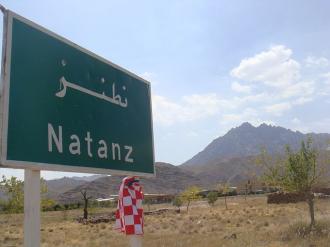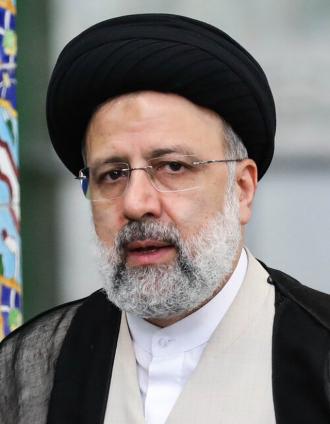The Book of VaYikra, introducing the full gamut of laws as they pertain to most elevated service of the various offerings in the Mishkan, begins with a simple summons: ויקרא — And He called, אל משה — to Moshe, and G-d spoke to him from the Tent of Meeting, saying, going on to teach the details of these laws.
Rashi quoting the Midrash, notes the seeming repetition — He called, and G-d spoke, and explains that this indicates that every time G-d communicated with Moshe — whether when it says וידבר, and He spoke, or ויאמר, and He said — it was always preceded by G-d 'calling' — קריאה — to Moshe, as an expression of חיבה — affection, the same expression employed by the ministering angels when addressing each other, as it says, "and one קרא — called to the other".
In what way is 'calling' someone indicative of affection?
Furthermore the source for this idea is in the verse in Yeshayah (6 3), which we recite every time we recite Kedusha, and also in U'Va L'Tziyon, And one angel would call to another and say: holy, holy, holy is G-d, Master of Legions, filled is the world with His glory, seems merely to report how they summon each other to praise G-d. Where is the love apparent?
The Talmud in Yoma (4:) derives from here that before a person speaks to another, one should first 'call him by name', emulating this trait of G-d. This seems strange, as the verse in discussion is a conversation between G-d and Moshe, the greatest Prophet who ever lived? Why would this pertain to us simpletons?
Rav Yosef Zev Lipowitz pens in his Nachlas Yosef a most exquisite understanding of the message here. I have chosen to translate it in its entirety in order to convey the full thrust of his words.
Evidently, this 'calling' prior to speaking, is not connected to the greatness of Moshe, the Master of Prophets, who brought down the Torah from Heaven. It is intended to teach us humans, the proper etiquette in how to face and address our fellow man. If we value the honor of others not in accordance with the Torah's directive, but only according to our own notion, we will discover that we are diminishing the respect due others.
Let us delve into the language the Midrash uses: the expression employed by the ministering angels when addressing each other.
The phrase that makes the point in expressing the essence of angels turning to one another we find in the text of the blessing of Yotzer Ohr in Shacharis: Then they all accept upon themselves the yoke of the sovereignty of heaven, one from the other, and grant permission one to another, to sanctify the One who formed them, with calmness of spirit, with articulation that is clear, and with sweet melody.
If we understand these expressions in its simplest fashion, we have portrayed before our eyes a spectacular picture, an amazing and praiseworthy relating to others, humility, self-negation, revealing heaps of affection and love, all so that we will sanctify the One who formed them. True, we cannot fathom the levels of angels, their function, their intellectual capacities, yet Yeshaya the prophet found it appropriate to inform us regarding the essence of angels with an introduction: 'and one angel will call to another' — as the Targum translates, 'ומקבלין דין מן דין' — and they receive one from the other. Each angel turns towards, as it were, his fellow, and says "you are greater than me", "you open in song first". All stems from affection and love, to fulfill the lofty goal to declare קדוש — holy, before Him the blessed.
What we have here is not the standard concept of simply calling to one another, but as we state in the blessing of Yotzer, 'then they all accept upon themselves the yoke of the sovereignty of heaven, one from the other', this the 'clear articulation'; the 'sweet melody'; asking permission. This whole narrative is encapsulated in the notion of קריאה — calling. And where did this begin, in our portion, with ויקרא. If the Holy One, blessed be He, 'beckons' Moshe, His servant, with this language, and prefaces every spoken and said word with this choicest of idioms, certainly it is fitting that this should be the style angels are accustomed to, and more so, man in his communication with his fellow man. This manner of addressing others courteously, lined with pleasantness and affection, must preface not only every expression of Torah related conversation but even the mundane conversation between men.
If G-d, as it were possible, is particular to initiate each discussion in this form, and the Torah alludes to it, it is a clear sign that we are obligated to act accordingly in all our relationships with others of our ilk. Although we are quite dissimilar from the relationship between G-d and Moshe, who was selected from all of humanity, the spiritual father of all prophets and scholars, we may derive it from there. No matter how great of a stature Moshe had been, there is still quite the distance between a man born from a woman — even as great as he — and the One who rides upon heaven, an aspect of the expression, ונחנו מה — and but what are we?
If the Torah sought to teach us that G-d beckons with love, prior to every conversation with Moshe, and confers honor upon 'flesh and blood', it is clear then that Torah wants us establish for here and forever the stature of man and his worth, who was formed in 'His image', to the extent that if we are lax in honoring others by the yardstick of the Torah, we are de facto offending and profaning His honor. Who is like G-d, our Lord, who sees deep in our hearts, the Creator who sustains all of humanity, who fashioned and imbued with life our sinews and limbs, who is like Him that can assess man's true grace of his presentation, his greatness and fitting honor.
It is from this vantage point that the law was established in the study halls of the sages: Torah teaches us proper etiquette — no man should engage in conversation before calling him by his name. This detail is not to merely teach this detail alone but rather to reflect on our greater perspective of others. In any encounter with our fellow man, whomever it may be, if we are not vigilant to follow this enlightened script of the angels — we are committing the sin of lessening of another's image, a direct assault on his dignity, and a grave defect in our appreciation of the choicest of creation.
Even more stunning is the fact that when G-d 'beckons' Moshe it doesn’t even refer to G-d by name, as it does elsewhere, simply, And he called to Moshe.
It intimates an extraordinary closeness, submerging G-d's exalted stature and being, and depicting an almost casual and instinctive turning of one friend to another, absent of pretension or superiority.
The objective of קרבנות — as Rav Hirsch so eloquently points out, is not to 'sacrifice' or present 'offerings' but to approach — קרב, to come near, and so to get into a close relationship with G-d.
Clearly, the very first lesson in attaining closeness to Hashem, can only begin if we can emulate G-d's deep and unequivocal appreciation for every Jew.
באהבה,
צבי יהודה טייכמאן















